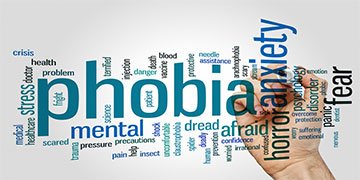Fear of Public Speaking
Fear of Public Speaking
Fear of public speaking Cardiff: Definition
A fear of public speaking can be defined as a feeling of anxiety (prior to and during) any form of verbal communication given to an audience. It can also be termed as speech anxiety, presentation nerves, stage fright and glossophobia. Fear of public speaking is a form of social anxiety.
Fear of public speaking Cardiff: Formal and Informal settings
A fear of public speaking can affect many situations both formal and informal. Most people can recognise the formal settings when you have given a talk using prepared material in school, college or your workplace. Other formal situations can include giving speeches at weddings, funerals and association meetings.
A fear of public speaking in informal settings may not have previously prepared material but can have “rehearsed” content e.g. telling a joke to your peer group. Some speakers who rely heavily on scripted material can feel anxious because you are required to speak “unscripted” about you e.g. when introducing yourself at the start of a business meeting. Anxiety can also be experienced in seminars when “speaking from the heart” about a very personal issue, fearful that sensitive issues may be judged by other delegates.
Stage performers can exhibit confidence as the “expert” singing or playing your instrument but you can also suffer some stage fright during specific aspects of your show. “Chatting” to the audience can seem daunting because you are making an informal connection with your audience. You don’t have your music or instrument to hide behind.
For those with chronic social anxiety, the fear of drawing attention to you is enough to create a panic attack. So even giving an account of your holiday to a few members of staff in the staffroom and then finding the staffroom going quiet because everyone is “tuning in” can be traumatic.
For the confident speaker, it can be difficult to appreciate what someone with chronic social anxiety suffers when when they have a fear of public speaking.
Fear of public speaking Cardiff: Causes
With figures suggesting that a fear of public speaking is the most common fear in the world, it justifies the belief that very few people are “born” public speakers. If you are one of the minority that enjoys giving presentations, you are probably extrovert, are knowledgeable in your field of expertise and/or you have found a way of altering the perception of your fear. Any mild anxiety that you have experienced in your journey has been overcome with effective practise and by learning the necessary presentation skills.
So why are some people more prone to a fear of public speaking than others? One or more of these issues could contribute to your fear.
• Personality types or traits
Anxiety – Those with general anxiety and social anxiety are more likely to have a fear of public speaking. You tend to worry and see the negative side of situations, believing that things will ultimately go wrong! You rarely get past your “what if…” scenarios. You struggle to cope with anticipatory anxiety, increasing your stress symptoms (muscular tension, loss of sleep, IBS etc.) as the presentation draws near. You then focus on these symptoms, believing them to be visible to your audience. This distracts you from giving your presentation. After the event, you deny any praise because your anxiety overwhelms your interpretation of the presentation.
Perfectionism – You set excessively high standards in your presentation expecting everything to go flawlessly. You exhaust yourself trying to reach these standards and may neglect other obligations (and relationships) en route. You rarely delegate because you cannot trust the standards of another person. Any mistakes in your presentation are harshly criticised (mainly by you), causing you to double your effort next time. You then become more anxious about your ability to keep achieving perfection in the future. You are aware of how much effort the presentation took out of you in this attempt. You fail to accept external praise on your methods because the (often unobtainable) goal is all that matters.
Lack of self-confidence – You distrust your own judgements and doubt your ability to achieve your goals. You tend to set low targets because you are risk aversive. You keep well inside your comfort zone because you have a fear of failure. This justifies avoiding the presentation in the first place. You are easily swayed by the opinions of others as you approach the presentation date. Rather than learning from your mistakes made during the presentation, you try to hide them because you are ashamed of them. You worry about the criticism of others but ironically, you are too embarrassed to accept their praise. Even if you did give a good presentation, you shrug-off the praise, claiming it was the work of others.
Inevitably a lack of self-confidence can affect all that you do. You believe that you lack confidence in your presentation subject-matter. So rather than talking freely in your presentation, you worry that others know more than you. You believe that they will pick holes in your presentation and your lack of knowledge.
Low self-esteem – Since you believe that you are not good enough, this perspective is projected into all that you think, do and say. Your presentation preparation is plagued by self-doubts; you are unsure whether the content is good enough. Your low self esteem may be directed onto parts of your body (low body esteem). Standing in front of an audience means that this part of you is in full view. It only serves to heighten your embarrassment. If you feel inferior about your voice, your anxiety will “strangle” any attempts to project it adequately.
Fear of embarrassment – A fear of embarrassment belongs to the domain of social anxiety. The fear of humiliating yourself in front of your audience is your overriding worry. Your anxiety symptoms take over and become “visible” to your audience during the presentation. Amongst many symptoms, your hands shake, you become more forgetful and you “lose” your voice.

Fear of attention – Another issue that is part of social anxiety. You fear drawing attention to yourself or being stared at by others. You worry what people think or what they might say. Standing on a “stage” has few hiding places; a tall lectern might do the trick, but just being there causes you to feel self-conscious. As a coping method, you avoid looking at your audience. Ironically, they will stare at you more because they feel excluded. Your emotions are compromised because if your audience looked outside the window during your presentation, you would think that they are disinterested or bored.
Fear of rejection – A person who fears rejection is likely to have self-esteem issues and social anxiety. Your deep need for acceptance puts you in the centre of any situation. You perceive that, if an outcome is favourable, then you are confirmed as good enough. But when the outcome is adverse, then you believe that you are unworthy. It is all “personal” because you have instilled this self-limiting belief. You dismiss the learning of any skills or the opportunity to grow through practise. You may have moments when you can “de-personalise” this rejection, but it ultimately slides back to you – the person. So in situations like presenting as part of an interview, you won’t take the risk because it exposes the fear that you may not be good enough; it exposes your fear of rejection.
• Previous bad experience
You learn from your experiences. But when an experience has been disastrous, your stress/anxiety responses become firmly attached to the incident. It re-surfaces when you anticipate tackling that same situation again. So when you’ve been ordered to give a presentation to cover an absent colleague at the last moment and know very little about the subject-matter, unsurprisingly the presentation goes wrong. If you are then fired on that unfortunate performance (harsh, I know!), this trauma causes anxiety to flood you when you need to give another presentation in the future. The bad experience has left its mark on you and set up your fear of public speaking!
Not all learning is directly related to the situation. A fear of confined spaces e.g. lifts, can be attached to a fear of public speaking because indirectly, it is a situation that you cannot easily get away from when you feel anxious. You feel “stuck” on stage which indirectly reminds you of being in a lift.
• Inadequate preparation
Confidence grows with the knowledge of how to do something and successful practise. So when you are taught how to prepare and deliver a presentation, the belief that you can succeed will grow. When you are given your presentation title you are more likely to “do your homework” and prepare sufficiently to achieve the desired goal. However, when you are terrified of the outcome and have been left to do your own (ineffective) preparation, it is quite reasonable for anxiety to take over and avoidance to kick in. The person who then believes that you ought to be able to give a presentation “by now”, evades any methodical preparation. Panic sets in and nothing is prepared for the big day.
• You fear your audience
You give authority to the opinions of others. You believe that others have grounds to criticise either the content of your presentation or your credibility to be presenting it. So your mind is dominated by what they are thinking rather than what you can do in your presentation. You worry about the implications of saying something controversial or simply “messing up” and making a fool of yourself. You cram in too much information fearful that it appears incomplete. It is likely that you are trying to impress your audience and are overly-focused on their reactions. But you reject any potential positive feedback. You see a room full of people that are better than you, laughing at your comedy of errors! Since you doubt your own credibility (low self esteem), you are waiting for confirmation that you don’t deserve to be on the stage.
You hesitate to “know your audience” in advance, because even if they are your peers or your subordinates, they have gone the extra length to research something that you know nothing about. You are ashamed to admit that you don’t know a topic in your presentation, so you try to bluff an answer. You are waiting to be exposed as a fraud. When you know that there is a genuine expert in the audience, your anxiety is overwhelming.
Fear of public speaking Cardiff: Do you have a fear of public speaking?
Being apprehensive or nervous before and during a presentation is quite normal. If you give presentations on a regular basis, then it’s likely that you have overcome any acute anxiety symptoms. So what qualifies as a fear of public speaking? Firstly, you will have significant levels of anticipatory anxiety that dominate your life weeks before the presentation:
• You are preoccupied with what you believe will go “wrong” on the presentation day.
• You appear slightly detached, “daydreaming” about your worries.
• Sleep is often disrupted and the quality of sleep can be restless.
• You become more reliant on comforts e.g. food or alcohol.
• Ritualistic habits dominate as you try to distract your mind from the anxiety.
• You divert any practical attempts to work on the presentation by completing unimportant routine activities (procrastination).
• You seek avoidance strategies to ease your anxiety e.g. delegate to a subordinate member of staff, postpone the date, feign illness etc.
• Anxiety symptoms (see below) develop in moderate levels leading up to the presentation.
You have a fear of public speaking if, close to the presentation day and throughout the presentation itself, you suffer with one or more of the following stress/anxiety symptoms at an acute level:

• Blushing
• IBS
• Panic attacks affecting your pacing (tendency to rush)
• Profuse sweating
• Tachycardia (fast heartbeat)
• Uncontrollable shaking
• Stammering
• Difficulty breathing (hyperventilating)
• Dry mouth
• Memory loss
• Muscular tension particularly around the vocal cords affecting your speech.
• Nausea
• Feeling faint
• Increased frequency of habits (fidgeting)
• Feeling claustrophobic (confined to the stage)
Treating your fear of public speaking
These are some common methods of treating your fear of public speaking and controlling the anxiety that inhibits you:
• Self help methods – These involve gradually building up your confidence and skills giving presentations in “safe” situations. When starting, consider your ideal topic, audience and location where you can decide the conditions. In this chosen situation, making a mistake would be trivial. Think of it as a practise of a practise. For some of you it might literally start in front of the mirror.
Public speaking tips can guide you through your early stages of learning.
• Join a public speaking class – If your company is unable to give you training in public speaking, then you can learn the art from a public speaking trainer in a classroom setting. Public speaking skills are taught in groups and you will gradually build up to giving a presentation at the end of the course. If you are encouraged by other people going through the same experience as you, then a public speaking class could help your presentation skills.
• Treat your anxiety through your GP – Anxiety can be debilitating. When anxiety affects your ability to communicate, then controlling it is essential for a fear of public speaking. Discuss with your GP how anxiety can be treated with medication. Depending on the severity of your anxiety, your GP may also be able to arrange counselling or CBT (cognitive behavioural therapy).
How can hypnotherapy help you fear of public speaking?
Hypnotherapy can be an effective way of treating your fear of public speaking in a number of ways:
• Control your anxiety – Hypnotherapy is a natural treatment. Once you have learnt relaxation techniques in the form of self-hypnosis, they can help you cope with your anticipatory anxiety. You can learn to utilise them during your presentation to reduce your anxiety symptoms listed above. When used strategically, they can also moderate the pace of your dialogue and assist with your voice projection.
Hypnotherapy relaxation techniques can help you to appreciate how much your symptoms are part of an anxious cycle perpetuated by you own emotional state. By controlling your anxiety, you can develop your presentation skills without your mind being preoccupied with your symptoms.
• Identify unconscious causes of your anxiety – The negative stored experiences in your mind can be indirectly associated to your presentations. These create spontaneous anxiety symptoms e.g. previously embarrassing yourself by falling over when you were in a crowd can be negatively stored as “crowds = anxiety and embarrassment”. You didn’t give a presentation in that past situation, but now you are anxious when giving a presentation because your mind is triggering the “crowds” link.
When you are unable to identify why you are struggling with presentations, you will continue to create random anxiety symptoms until you can identify these causal events and releasing the negative emotion from then. Regression hypnotherapy can be used to facilitate this process.
• Reframe direct past traumas – Past traumas caused when you have previously given presentations are the negative building blocks that pull your mind into your stressed awareness. Your mind stores these adverse experiences in an attempt to keep you safe from experiencing yet another trauma. Hypnotherapy techniques can be used to reframe the meaning of those traumas reducing your anxiety symptoms in your fear of public speaking.

• Visualise your peak performance – You have probably been told to “think positively” by many people. But when anxiety and a history of past traumas shape your awareness, it can be difficult to visualise what you want to achieve. In hypnosis, your mind can readily accept suggestions and positive imagery. This can help focus your mind towards your goal and give your mind an imagined experience of a presentation that has gone well.
• Change negative beliefs about yourself and presentations – Some of the causes of your fear of public speaking (listed above) can be quite deep rooted and self-limiting. You may view some these causes as overwhelming “facts”. By analysing these negative beliefs, they can be treated so that your mind can be more receptive to accepting positive suggestions. When these changes are reinforced with practise of your presentation skills, it can accelerate your potential to speak in public.
Fear of public speaking: summary
Overcoming your fear of public speaking doesn’t happen overnight. It requires a determined and courageous decision to want to develop skills in the face of anxiety. By finding a “safe” audience to practise with, your confidence can grow as you learn to master your skills. Be prepared to make mistakes and persevere. Train your mind to role-play any character that deflects the attention away from you.
Hypnotherapy can assist your fear of public speaking on many levels. As a qualified and experienced teacher/trainer and clinical hypnotherapist, I can help you develop your presentation skills and reduce your anxiety associated with your fear of public speaking.











